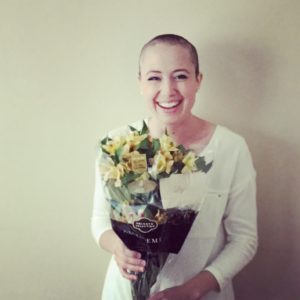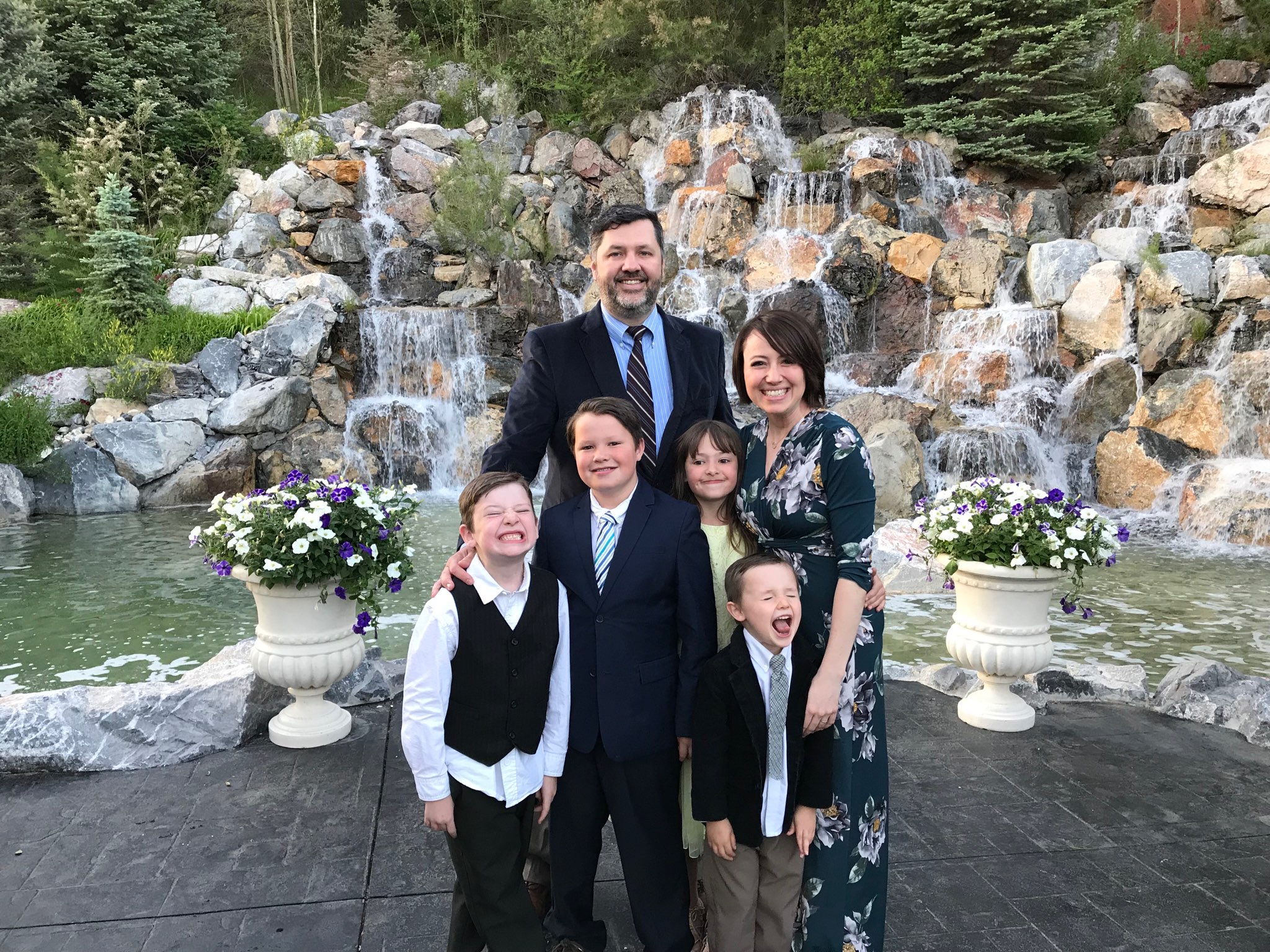The starting gun fires and thousands of runners surge forward, powered by adrenaline, fueled by stories.
It’s the morning of the 2018 American Fork Canyon Run Against Cancer, and for the past two hours, runners layered up against the chill morning have run through their pre-race routines. Anxious athletes have wrapped themselves up in the thin space blankets provided for them in their race packets as they wait for the sun to slip over the mouth of the canyon and chase away the chill of the pre-dawn summer morning.
But now the moment has arrived and the mob of runners leaves the starting line, and everyone is running for a reason.
Ashley Parks is no exception. In September 2016, at just 31 years old, Parks was diagnosed with stage IV breast cancer. The American Fork Canyon Run, hosted annually by Intermountain Healthcare Cancer Centers, is important to her because the proceeds go to support local cancer patients in Utah County, helping with medical bills and other associated costs.
Not long ago, Parks was one of those cancer patients. She said her experiences as a cancer survivor help her run with compassion, patience and faith, not only in the race in American Fork Canyon but in the race of life.
Running with Perspective
Parks said she first discovered a grape-sized lump in her breast in the shower, but she had initially thought it was no big deal, assuming it was just a cyst. “I kind of felt like a drama queen even bringing it up to (my husband) Aaron,” she said.
Over a month later, when she finally went in for a mammogram, the doctors found that the lump was solid. Cysts are typically filled with liquid. The doctor performed a biopsy, promising results in a few days.
The call came around 5:45 on a Friday, Parks said. She and her four young children, ages nine, seven, five and two, had just returned from a swimming trip with their cousins and were getting started on a late dinner. It was past business hours, so no one was expecting the doctor when the phone rang, Parks said. After apologizing for having to deliver the news in such an impersonal way, he confirmed her worst fears. “I’m sorry,” he said. “But it is cancer.”
“I walked into one of my kids’ bedrooms,” Parks said, “because it was quiet in there. And I started crying right away.”
She said her husband came in and saw the look on her face. “At that point, I held the phone out or maybe I put (the doctor) on speaker, I can’t remember. We just talked to him for like an hour.”
The bedtime routine was quieter that night at the Parks home. When Finn, Kate, Rex and Crew were not listening or were going too slow with their kitchen clean-up assignments, Parks said she and her husband just looked at each other as if to say, “There’s no way we’re gonna be frustrated with our kids.”
Today, Parks is a more patient mom because of what she went through, she said. It’s easier to overlook the simple mistakes of those around her because she knows that time is short, she explained.
“I just try to treat every moment like it’s my do-over,” she said. “I just think, ‘If this was my second chance of doing this, how would I respond?’”

Running with Compassion
Parks said she was amazed at how the drugs destroyed her body once she began chemotherapy. She said it dried out her skin, and her nose became so dry that it was cracked and full of bloody scabs making it hard for her to breathe. Her eyes dried out, blurring her vision. Her mouth erupted with raw, painful sores that felt like “somebody taking a waxing strip to my gums,” which she said made eating next to impossible. It didn’t matter though, she said, because chemotherapy made everything taste like metal.
She had treatments every three weeks. For the first week, she said she felt unable to function, unable to get out of bed. The symptoms would slowly wear off, but then it would be time for the next treatment. “I would start to feel normal, and then I’d have about a week of feeling pretty okay, and then it would be time to go back in.”
Parks said she remembers sitting in church after her first round of the treatment. She said she somehow, with her bloody, scabby nose, her low ability to breathe and her severely limited vision, she felt well enough to make it.
During fast and testimony meeting, a visitor stood up and shared her testimony about a relative who had received her cancer results, and they were negative. “She was crying about what a blessing it was, and I was just so bugged,” Parks said. “I knew that I needed to have a good attitude, I just did not need to be hearing about how someone miraculously did not have cancer.”
Many people she knew approached her, wanting to share stories about friends and relatives who had suffered through various types of the disease, but, despite understanding the need for people to relate, Parks said it wasn’t helpful. What did help, she said, was when people stopped trying to relate and simply acted in small but powerful ways to help relieve stress.
Her two aunts, both in their seventies, came each week to pick up her laundry. Even though it was becoming hard for them to walk, they would painstakingly lower the heavy loaded baskets down each of the front porch steps. One of her sisters brought her ice chips and mint to cool the sores in her mouth. She received so many packages in the mail from concerned family and friends that her seven-year-old daughter Kate exclaimed, “Having cancer is fun!”
Parks said before having cancer, when she heard that someone was going through a hard time, she would think, “That’s too bad,” and maybe include them in her prayers for a few days. Today, she said, she is quicker to act. “Anything you can do to relieve stress, any amount of stress, from someone who’s going through something hard, is beneficial,” she emphasizes. “So don’t ask, ‘What can I do?’ and don’t wonder. Just do something.”

Running with Faith
Those who know Parks noticed that she still had optimism in the face of her cancer. “I remember her being so sick, yet she would still smile and still had her sense of humor,” said Erica Goulding, her visiting teacher at the time. “She didn’t sugarcoat things, but never complained about what she was going through.”
Parks attributes her optimism to her faith in Jesus Christ. “I know that the reason my heart was happy when it should have been sad is because I relied on my Savior.”
Looking forward, Parks says she doesn’t know what the future holds. Traces of cancer could be discovered in her body any time down the road. Still, she says she finds confidence in the fact that in her greatest moments of need God did not desert her. “I know I have felt, especially during the time when I was going through chemotherapy, the love of my Father in Heaven, and I felt like He was giving me what I needed to make it to the next step.”
On June 22, Parks found herself at the AF Canyon Run Against Cancer once again. The Parks family received $300 in gas and grocery cards during her cancer treatments, and she said it makes her feel good knowing that she can support families in a similar situation. “I’m excited to be well enough to do it,” she said. “I just want to make the most of every moment that I have, and doing this race helps me remember that. Doing this race helps me remember how far I’ve come.”
Reported by Maddie Mehr




